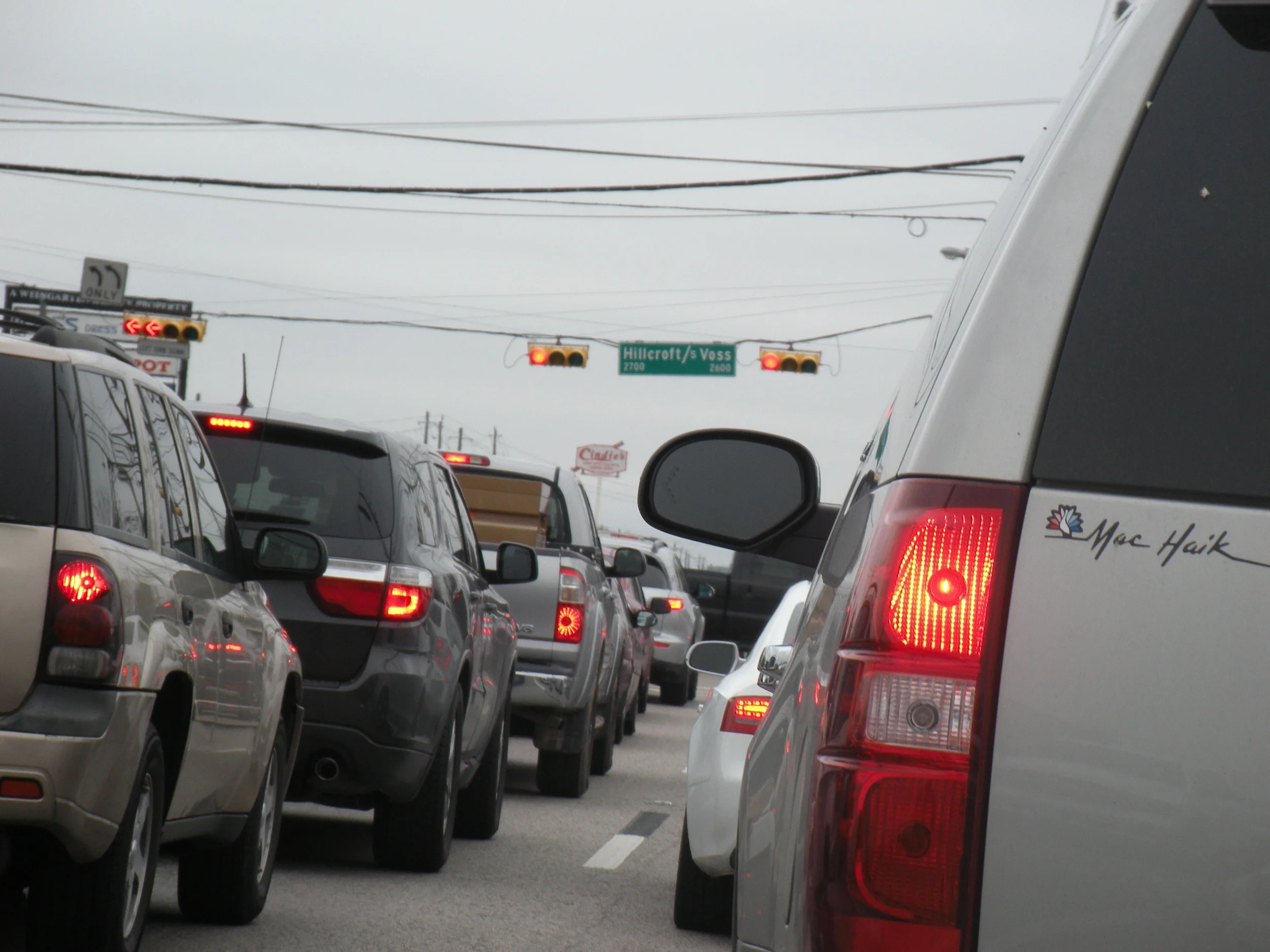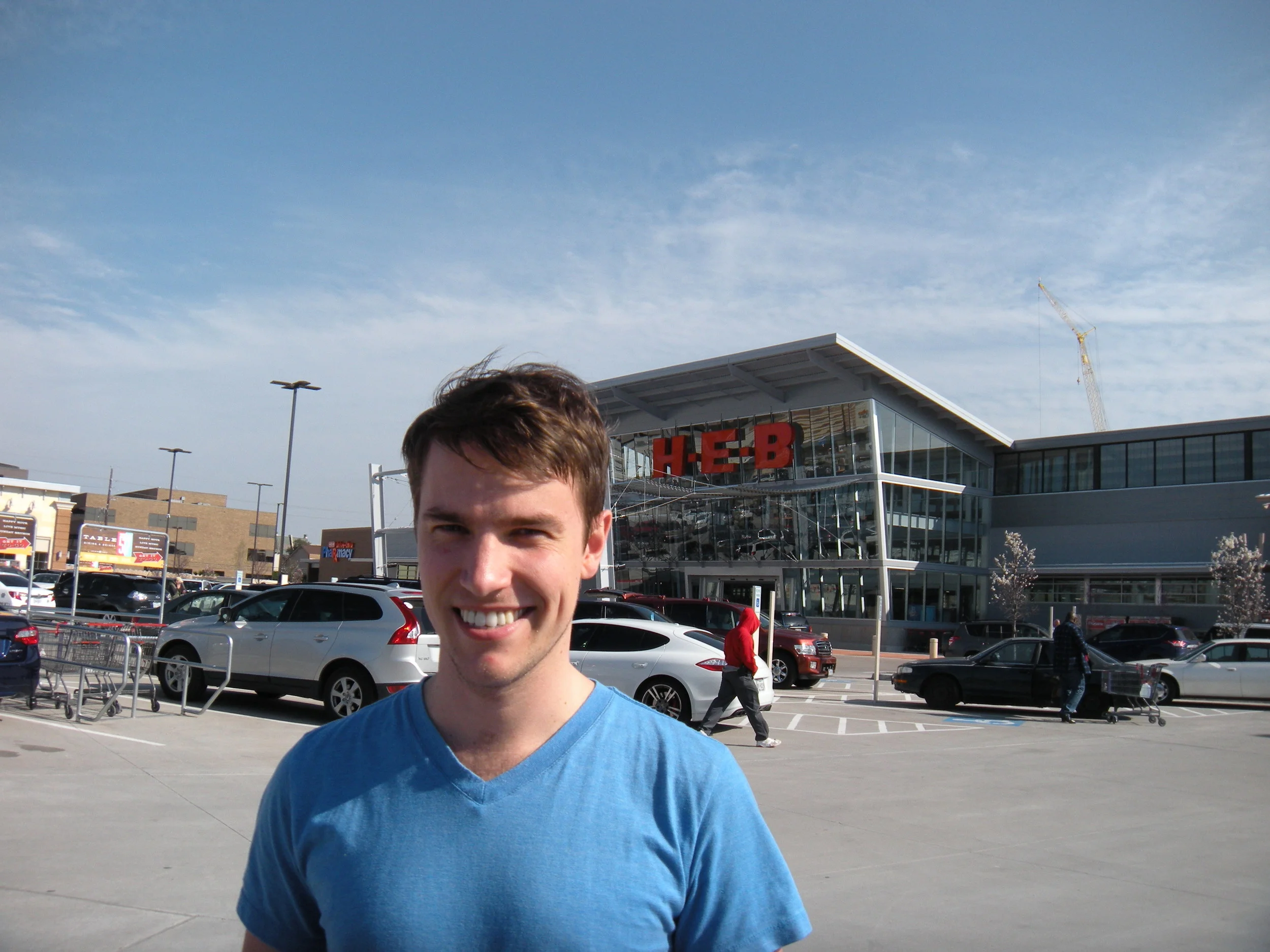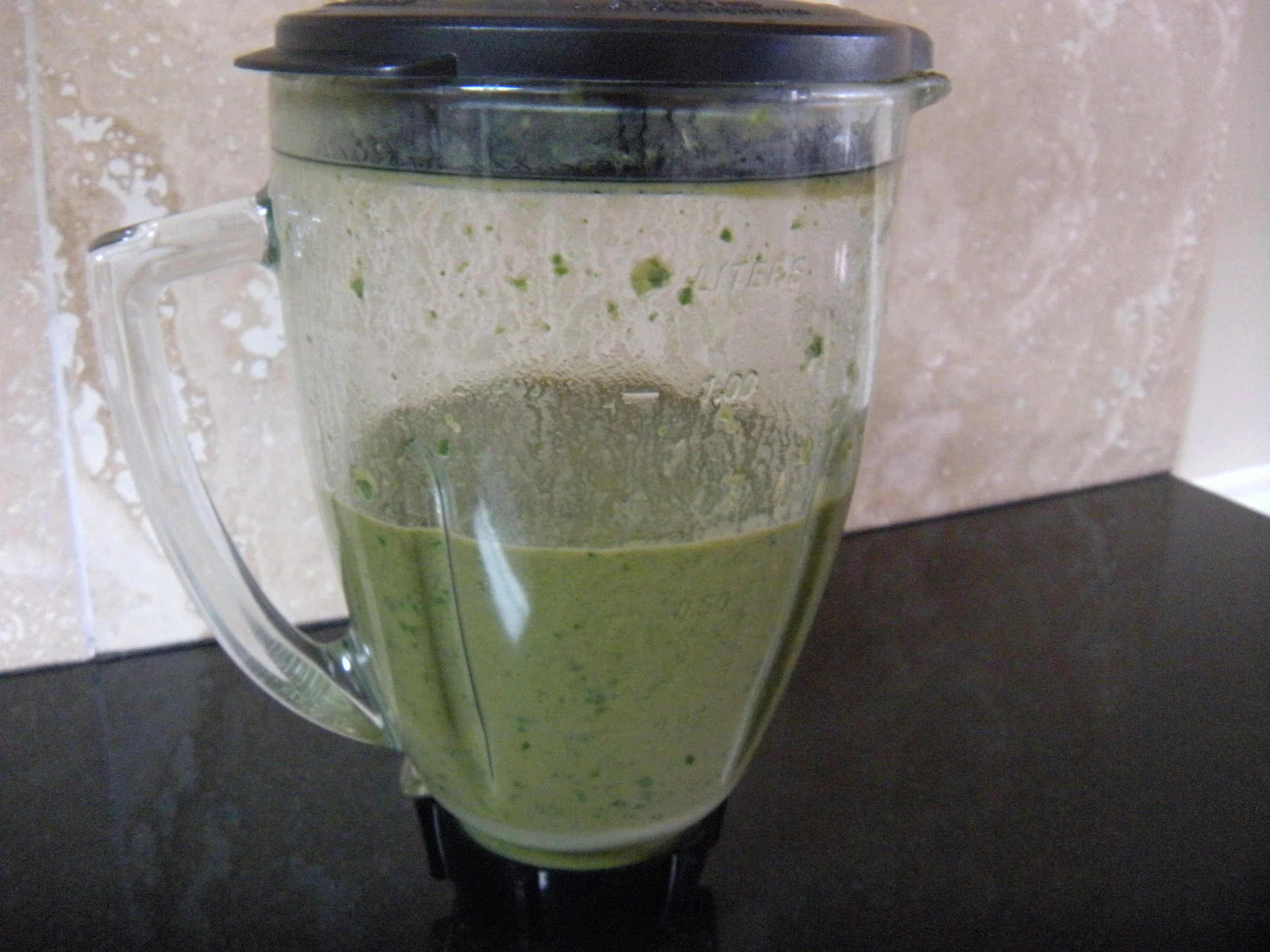In the driver’s seat in the first car at the traffic light a man grows uncomfortable. Because he thought it was cooler than it is, he put on too many layers—a T-shirt, sweater, and wool jacket. And though the air conditioning’s on, the sun beams harshly on the dashboard, causing waves of heat to rise and dry the air. The man’s forehead begins to sweat. His face is getting hot; and he’s on his way to meet a client, who will surely be put off by the red cheeks and clammy hands.
The driver unfastens his seatbelt, intending to remove the heavy jacket, which he stupidly zipped himself into earlier, swaddling his torso as though scared of freezing to death between his front door and his car. He unzips, but the back of the jacket is stuck beneath his hip so that the fabric has no give when he tries to work his shoulder out.
The light’s a long one. It’s been red forever. Voss and Westheimer. It’s always been a busy intersection, made busier by the opening of the new chicken place on the corner, Pollo Tropical. Also, the population of Houston has risen drastically in the last few years, which means more cars on the streets. Where once there would have been seven or eight cars in the lane behind him, now there are fifteen or more.
He struggles with the sleeve; and the wiggling and pulling makes him hotter. Unable to stand it a second longer, desperate to shed the impermeable wool, he opens the door and leaps out. It’ll only take a second.
Jenny is in the car behind him. Relaxed and enjoying a podcast—Stories of Caprock, a humorous and quirky tale about an urbexing addict—she’s shocked to see the man in front of her emerge from his car. This is something that, in her experience, simply is not allowed. As a rule, she is sensible and tolerant, though admittedly impatient when it comes to people acting like idiots.
The light turns green. The man who’s out of his car doesn’t realize this because he’s focused on getting the weight off his back, the heat off his shoulders.
The cuff at his wrist is snagged on his watch.
The sound of a car horn fills the air, startling him. He looks up from his fight with the jacket. The woman behind him is honking. Her face is a mask of rage as she screams and alternates between gesturing wildly and pounding on her horn.
And then the person in the car behind her begins to honk, also. There is a tap on his shoulder. He turns to see a raggedly clad man holding a cardboard sign. The sign reads, “Jobless. Hungry. Sick. No Money. Help me.”
“Green light,” the scruffy man says. “Back in car. Drive.” Only the man has a speech impediment of some sort, or maybe some kind of brain damage, and his words come out more like, “Rite, dak in car. Ire,” which confuses the jacket-removing man even more.
“I have no money for you today,” the discombobulated driver says. Shaking his head, distracted by all the inexplicable racket (and then this homeless guy coming so close—actually touching him!) he finally works the jacket off, tosses it toward the passenger seat—but his sunglasses, tucked into the breast pocket, go flying. They land on the other side of the door, just out of reach, so that he must circle the door in order to retrieve them. He grabs them up, circles, and folds himself into the driver’s seat. And all the while, horns split the air.
Only then does he notice that the light has turned green. He accelerates through the intersection; and trailing him, riding his bumper, Jenny pushes through on the last few seconds of the yellow light. Behind her, though by this time the light is clearly red, five other cars go through.
Jamaican chicken--haven't tried it yet, but am mildly curious.
Too many cars.











